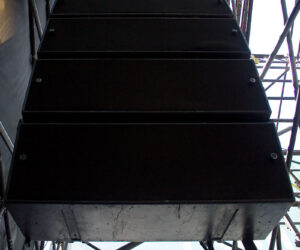I’ve spent the past 20-plus years marketing professional audio products to touring sound and A/V rental companies.
It seems that every year the hue and cry from the owners of these companies gets louder, who universally claim that their competitors are trashing the pricing of rental equipment and that profitability is sorely lacking.
And I happen to believe them.
Why is this happening?
I believe many factors contribute, including general saturation of rental equipment in the market and poor business management such as a lack of understanding of overhead structure and operating costs within the rental company.
But two other factors that generally get very little airtime need to be seriously evaluated and considered. As you’ll see, they go hand in hand.
1) The nature of negotiation between rental companies and their (potential) clients.
2) The marketing of equipment and services by the rental companies to their (potential) clients.
Let’s first focus on point number one. Client negotiations frequently divide into two broad categories.
At the outset, the rental company defines the agreement with someone who usually understands both the value of equipment as well as qualified support, and the differences these two elements can make in terms of the quality of a show.
Typically, this stage of negotiation is done with a production manager or person in a similar capacity.
But then the negotiation shifts to its second phase, where focus becomes the dollars and cents of the transaction.
This is done with individuals (accountants or accounting types) who have little to no interest or understanding of what the equipment even does, let alone its value and the added worth of related support and experience. And this, my friends, is most often where things fall apart for the rental company.
Rather than simply taking over the negotiation after the knowledgeable production manager has approved a list of qualified vendors, the accountants like to “spin bid” the project.
They take the lowest bid to the “preferred vendor” and ask (require?) them to beat it. Too often in our business, rental companies simply roll over and lower their price rather than risk losing the bid, regardless of profitability.
The big question: why do we, in the professional audio industry, continue to participate in – and by timid association – even support this ruinous practice?
This brings me to the second point, which is MARKETING.
More often than not, I see rental bids that are little more than glorified equipment lists. There is absolutely no attempt to define the quality of the equipment, let alone the service value of the rental company and its support individuals.
My experience on the manufacturing side has taught me three things about marketing professional audio products.
First, a successful product must have superior value to those with which it is compared. Second, a successful product must be differentiated from competitive offerings. Third, a successful product must provide a barrier to competitive entry.
Any product that does not have strong attributes in each of these areas becomes a commodity, and that’s where the accountants take over.
And can you blame them? A simple equipment list, without further explanation or distinction, is an open invitation for the non-informed to simply compare non-defined apples with equally non-defined oranges.
After all, speakers are speakers, amps are amps and processors are processors, right? And two support techs are the same as the next two support techs, correct? And one rental company is identical to all others in terms of its attention to detail, commitment to quality and cumulative experience, yes? Well, no.
Marketing is many things, and at the top of the list, marketing is differentiation. To break out of the current mode, rental companies must take every opportunity to differentiate their equipment and level of service. The simple question to be answered – as fully as possible and in each and every situation – is “why”?
Why should a rental company be hired at the exclusion of all others, why is each component in the system important, why is experience important?
All of these, and more, are compelling questions begging for answers, and the dogged pursuit of providing these answers is what leads to differentiation.
You do not want to be in a commodity market, I assure you. If so, then all competition is decided on price alone. Sound familiar?
The challenge for rental companies is to move from selling contracts for commodity rental equipment to differentiated systems and services that offer the client real value that is understood. If we, as an industry, can’t learn to do this, price will continue to erode over time.
And that is a sad prospect indeed.















